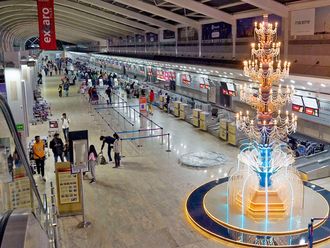Thiruvananthapuram:
Outspoken Communist Party of India Marxist leader, M.V. Jayarajan was on Friday handed a four-week jail term by the Supreme Court of India for his abusive comment about the judiciary at a public meeting at Kannur in 2010. The apex court reduced the earlier 6-month jail term given to Jayarajan by the high court, to four weeks.
The contempt of court case was triggered when Jayarajan referred to judges as “shumbhanmar” in Malayalam, which loosely translates into ‘idiots’. The comment was made in the backdrop of the Kerala High Court banning roadside political meetings that disrupted free flow of traffic.
Jayarajan said he “accepted the verdict” adding, “going to jail or facing torture is nothing new for a communist”. He said he believed he was taking up a democratic cause and that he had not apologised because he thought he had not done wrong.
The high court had taken up the case suo moto following media reports carrying Jayarajan’s contemptuous remarks about the judiciary. Jayarajan clarified that he had not abused any particular judge and that it was a general remark against the judicial system as a whole, but the court was not impressed.
Following the high court verdict of a 6-month imprisonment and a Rs2,000 (Dh119) fine in 2011, Jayarajan appealed in the apex court. He argued that the word ‘shumbhan’ in Malayalam also meant ‘one who spreads light’, but the apex court stuck to the high court’s ruling that the CPM leader’s comments were denigrating the judiciary.
The apex court also observed that at no time during the trial period Jayarajan had shown remorse at the remarks or apologised for the comment.
The leader’s comment had come at a CPM protest meeting in Kannur to oppose a fuel price hike announced by the federal government. The high court verdict of 6-month imprisonment and Rs2,000 fine was given by a division bench comprising justices V. Ramkumar and P.Q. Barkat Ali. Following the court order, Jayarajan was taken to the Poojapura central jail in the state capital. He later managed to get bail.
The then Left Democratic Front government attempted to find a way around the high court’s ban on roadside meetings through a fresh legislation, but it was stayed by a division bench of the high court. The court observed that the legislation was in violation of Article 19 of the Constitution which deals with the rights to freedom, including the right to move freely within the country.












